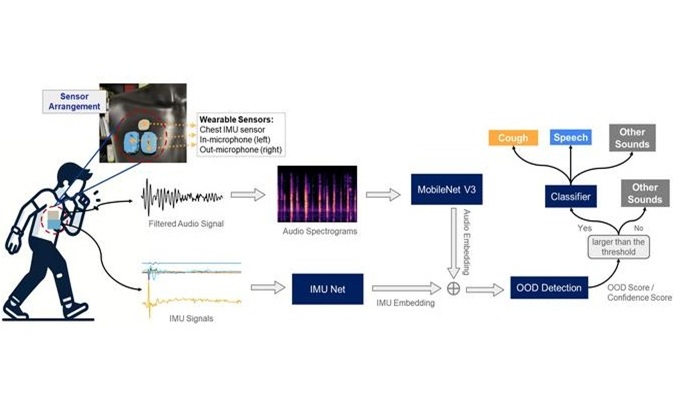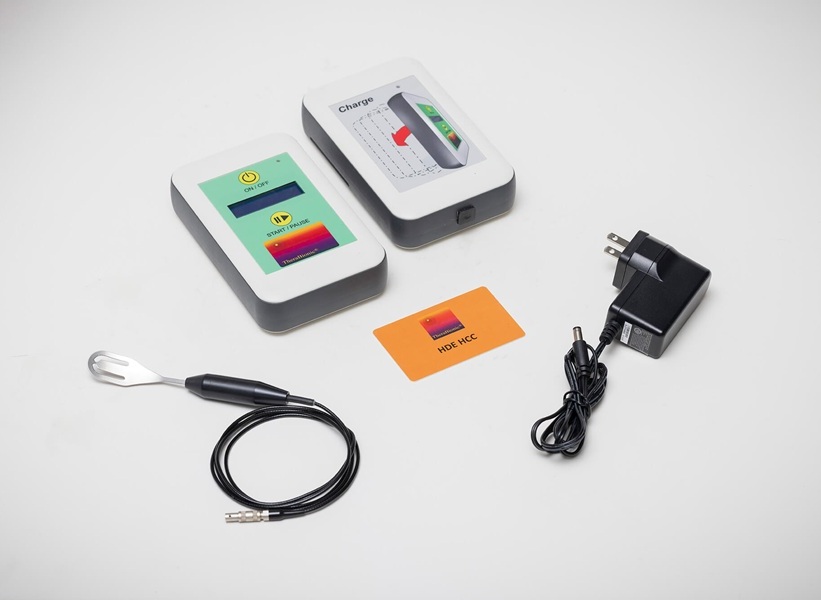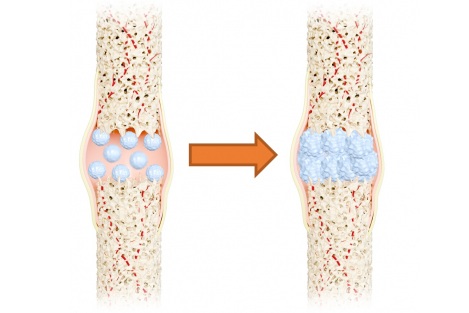Breastfeeding Offers No Reduction of Asthma and Allergies Risk
|
By HospiMedica International staff writers Posted on 30 Nov 2017 |
A new study claims that breastfeeding might in fact increase the risk of developing hay fever and eczema, while not having any clear effect on asthma.
Researchers at Uppsala University (UU; Sweden) conducted a study that examined the effect of breastfeeding on asthma, hay fever, and eczema, based on self-reported data from more than 443,068 middle-aged individuals in the United Kingdom, of which 71.2% had been breastfed. Disease was tested for association with breastfeeding, adjusting for matching for influential covariates. The results revealed that the prevalence of asthma was 11.4 % in the breastfed group, and 12.7% in the non-breastfed group, while the prevalence of hay fever or eczema was 23.9% and 24.8 % in the two groups, respectively.
The data also showed that increased socioeconomic status lowered the risk of asthma and increased the risk of developing hay fever, and that that a higher body mass index (BMI) increased the risk of asthma, hay fever, and eczema. Risk risk decreased in individuals with higher birth weight. Analysis showed no association between being breastfed and asthma; there were, however, increased odds of hay fever and eczema among participants that had been breastfed. The study was published on November 10, 2017, in the Journal of Allergy and Clinical Immunology.
“Individuals that were breastfed as babies have an increased risk of developing hay fever and eczema, while breastfeeding doesn’t seem to have an effect on asthma,” said lead author Weronica Ek, PhD, of the department of immunology, genetics, and pathology. “It is well established that breastfeeding has a positive effect on the health of the baby. These results should not be used to recommend or discourage breastfeeding, since the present study only investigates the effect of breastfeeding on allergies and asthma.”
The World Health Organization (WHO) recommends breastfeeding exclusively for the first six months of life. Even after the introduction of foods at six months of age, continued breastfeeding is recommended until at least one to two years of age. In reality, only 38% of infants are breastfed in the first six months of life on a global level, and is even lower in the United States (13%). Short term benefits for the mother include less blood loss, better uterus shrinkage, weight loss, and reduced postpartum depression. Long term benefits include decreased risk for breast cancer, cardiovascular disease (CVD), and rheumatoid arthritis.
Related Links:
Uppsala University
Researchers at Uppsala University (UU; Sweden) conducted a study that examined the effect of breastfeeding on asthma, hay fever, and eczema, based on self-reported data from more than 443,068 middle-aged individuals in the United Kingdom, of which 71.2% had been breastfed. Disease was tested for association with breastfeeding, adjusting for matching for influential covariates. The results revealed that the prevalence of asthma was 11.4 % in the breastfed group, and 12.7% in the non-breastfed group, while the prevalence of hay fever or eczema was 23.9% and 24.8 % in the two groups, respectively.
The data also showed that increased socioeconomic status lowered the risk of asthma and increased the risk of developing hay fever, and that that a higher body mass index (BMI) increased the risk of asthma, hay fever, and eczema. Risk risk decreased in individuals with higher birth weight. Analysis showed no association between being breastfed and asthma; there were, however, increased odds of hay fever and eczema among participants that had been breastfed. The study was published on November 10, 2017, in the Journal of Allergy and Clinical Immunology.
“Individuals that were breastfed as babies have an increased risk of developing hay fever and eczema, while breastfeeding doesn’t seem to have an effect on asthma,” said lead author Weronica Ek, PhD, of the department of immunology, genetics, and pathology. “It is well established that breastfeeding has a positive effect on the health of the baby. These results should not be used to recommend or discourage breastfeeding, since the present study only investigates the effect of breastfeeding on allergies and asthma.”
The World Health Organization (WHO) recommends breastfeeding exclusively for the first six months of life. Even after the introduction of foods at six months of age, continued breastfeeding is recommended until at least one to two years of age. In reality, only 38% of infants are breastfed in the first six months of life on a global level, and is even lower in the United States (13%). Short term benefits for the mother include less blood loss, better uterus shrinkage, weight loss, and reduced postpartum depression. Long term benefits include decreased risk for breast cancer, cardiovascular disease (CVD), and rheumatoid arthritis.
Related Links:
Uppsala University
Latest Patient Care News
- Revolutionary Automatic IV-Line Flushing Device to Enhance Infusion Care
- VR Training Tool Combats Contamination of Portable Medical Equipment
- Portable Biosensor Platform to Reduce Hospital-Acquired Infections
- First-Of-Its-Kind Portable Germicidal Light Technology Disinfects High-Touch Clinical Surfaces in Seconds
- Surgical Capacity Optimization Solution Helps Hospitals Boost OR Utilization

- Game-Changing Innovation in Surgical Instrument Sterilization Significantly Improves OR Throughput
- Next Gen ICU Bed to Help Address Complex Critical Care Needs
- Groundbreaking AI-Powered UV-C Disinfection Technology Redefines Infection Control Landscape
- Clean Hospitals Can Reduce Antibiotic Resistance, Save Lives
- Smart Hospital Beds Improve Accuracy of Medical Diagnosis
- New Fast Endoscope Drying System Improves Productivity and Traceability
- World’s First Automated Endoscope Cleaner Fights Antimicrobial Resistance
- Portable High-Capacity Digital Stretcher Scales Provide Precision Weighing for Patients in ER
- Portable Clinical Scale with Remote Indicator Allows for Flexible Patient Weighing Use
- Innovative and Highly Customizable Medical Carts Offer Unlimited Configuration Possibilities
- Biomolecular Wound Healing Film Adheres to Sensitive Tissue and Releases Active Ingredients
Channels
Critical Care
view channel
Origami Robots to Deliver Medicine Less Invasively and More Effectively
Delivering medicine to ulcers or other internal sites often requires invasive procedures that can disrupt surrounding tissues and lengthen recovery times. Traditional magnetic actuators used in soft robotics... Read more
Improved Cough-Detection Technology Aids Health Monitoring
Coughing serves as an important biomarker for tracking a variety of conditions and can help monitor the progress of respiratory diseases or predict when someone’s asthma is being exacerbated.... Read moreSurgical Techniques
view channel
Novel Glue Prevents Complications After Breast Cancer Surgery
Seroma and prolonged lymphorrhea are among the most common complications following axillary lymphadenectomy in breast cancer patients. These postoperative issues can delay recovery and postpone the start... Read more
Breakthrough Brain Implant Enables Safer and More Precise Drug Delivery
Delivering medication directly to specific regions of the brain has long been a major challenge in treating neurological disorders. Current implants and infusion systems typically reach only one or two... Read moreHealth IT
view channel
Printable Molecule-Selective Nanoparticles Enable Mass Production of Wearable Biosensors
The future of medicine is likely to focus on the personalization of healthcare—understanding exactly what an individual requires and delivering the appropriate combination of nutrients, metabolites, and... Read moreBusiness
view channel
Philips and Masimo Partner to Advance Patient Monitoring Measurement Technologies
Royal Philips (Amsterdam, Netherlands) and Masimo (Irvine, California, USA) have renewed their multi-year strategic collaboration, combining Philips’ expertise in patient monitoring with Masimo’s noninvasive... Read more
B. Braun Acquires Digital Microsurgery Company True Digital Surgery
The high-end microsurgery market in neurosurgery, spine, and ENT is undergoing a significant transformation. Traditional analog microscopes are giving way to digital exoscopes, which provide improved visualization,... Read more
CMEF 2025 to Promote Holistic and High-Quality Development of Medical and Health Industry
The 92nd China International Medical Equipment Fair (CMEF 2025) Autumn Exhibition is scheduled to be held from September 26 to 29 at the China Import and Export Fair Complex (Canton Fair Complex) in Guangzhou.... Read more









.jpg)






